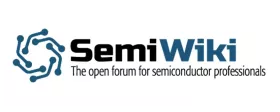Automobiles and the DMCA
When you drive a car off the dealer’s lot, you own the whole vehicle, right? For decades, car owners have popped the hood and crawled under the car to do their own maintenance; and for those mechanically inclined, even make modifications to improve performance or handling. However, in an era where a car is increasingly controlled by software, the right to tinker with your vehicle has been called into question. After all, software is often sold under a license and the end user doesn’t actually own the code. This means there is a lot of uncertainty about to what extent the public can modify the software embedded in a car.
Today the Library of Congress brought a bit more clarity to the situation by granting exemptions from the Digital Millennium Copyright Act (DMCA) that would enable the public to delve into the embedded systems and software in their vehicles for “good faith security research” and “lawful modification.” This was a much anticipated decision that captured the attention of everyone from the auto industry to the cybersecurity research community.
To read the full article, click here
Related Semiconductor IP
- LPDDR6/5X/5 PHY V2 - Intel 18A-P
- ML-KEM Key Encapsulation & ML-DSA Digital Signature Engine
- MIPI SoundWire I3S Peripheral IP
- ML-DSA Digital Signature Engine
- P1619 / 802.1ae (MACSec) GCM/XTS/CBC-AES Core
Related Blogs
Latest Blogs
- Why What Where DIFI and the new version 1.3
- Accelerating PCIe Gen6 L0p Verification for AI & HPC Designs using Synopsys VIP
- ML-DSA explained: Quantum-Safe digital Signatures for secure embedded Systems
- Efficiency Defines The Future Of Data Movement
- Why Standard-Cell Architecture Matters for Adaptable ASIC Designs
